Proceedings: Alexander von Humboldt’s Natural History Legacy and Its Relevance for Today
2001 Northeastern Naturalist Special Issue 1:3-4
ALEXANDER VON HUMBOLDT’S NATURAL
HISTORY LEGACY AND ITS RELEVANCE
FOR TODAY – OPENING REMARKS
THE HON. LIC. ARMANDO GONZÁLEZ-ANGARITA *
For the Venezuelan Consulate in Boston, and specifically for me, the
reasons which bring us together today are of extraordinary significance,
since to be able to participate, even for a few minutes, in an homage to
Alexander von Humboldt is, for us Venezuelans, far more than an
obligation, but rather a privilege, an honor, and a source of immense
satisfaction. And it is specially so, in this case, because of the high level
of erudition and distinction of the conference participants, all of whom,
originating from different spheres of human knowledge, have appointed
this occasion to celebrate the 200th anniversary of Humboldt’s arrival,
together with that of his no less celebrated French companion, the
physician Aimé Bonpland, in the tropical regions of the world.
A wide variety of topics, dealing with Humboldt’s legacy, will be
brilliantly addressed in the course of this symposium by a privileged cross
section of North American, German, and Venezuelan intellectuality, the
latter being represented by the illustrious compatriots Dr. Otto Huber of
the Simón Bolívar University in Caracas, Dr. Gustavo Romero of Harvard
University, and Dr. Diogenes Palau Patiño of the Venezuelan Ministry of
the Environment and Natural Resources. Consequently, considering the
quality of the presenters, there is little that remains for me to add in
respect to the work and mark left by Baron Humboldt. To do otherwise
would undoubtedly constitute an unforgivable act of unawareness.
Simply allow me to remind you that Alexander von Humboldt left
his mark on the natural sciences, and did so, in great part, in my country.
For Venezuelans, therefore, Humboldt is a prominent part of our national
essence. He observed and explained us through the natural sciences,
and made similar efforts in other fields of knowledge, such as
politics, economics and sociology. In the words of the Liberator Simón
Bolívar, “Humboldt is the discoverer of the New World, whose knowledge
has done more good for America than all the Conquistadores
combined.”
Today, in Venezuela, the reputation generated by his work continues
to keep his memory alive. His name shines everywhere. Towns, parks,
* Consul General, Consulate of Venezuela in Boston, 545 Boylston Street, Third
Floor, Boston, Massachusetts 02116.
4 Northeastern Naturalist Special Issue 1
academies, associations, schools, avenues, streets, and countless other
things exalt him. Among them is the Mt. Humboldt, with its 4,942
meters of altitude, and its no less important twin, Mt. Bonpland, in the
Venezuelan Andes.
To commemorate the 200th anniversary of his journey to America, a
series of conferences, expositions, and other events have been scheduled
in my country, in addition to other festivities which are taking place
around the world. A “Presidential Commission for the Commemoration
of Alexander von Humboldt’s Arrival to Venezuela” was created in
1998, and earlier this year, when President Hugo Chávez Frías assumed
power, a further commitment to this project was made. In February, the
sailboat Alexander von Humboldt arrived in La Guaira after having
traveled the baron’s route from Europe to Venezuela. In March, a
magnificent exposition entitled “A Journey Towards Wonder” was held
in Caracas under the auspices of the German Embassy, the Humboldt
Cultural Association, the Goethe Institute, and the aforementioned commission.
Also this year, the President of the Commemorative Commission,
Luisa Veracoechea, published a splendid book entitled “Alexander
von Humboldt in Venezuela: Second Centennial of his Journey to
America.” And lastly, here in Boston, under the auspices of the Venezuelan
consulate, among other Iberoamerican representations, the film
“Free Air,” by the Venezuelan director Luis Armando Roche, which
also captured Humboldt’s work, was exhibited last May.
The events noted merely represent some of the occasions which
Venezuelans have promoted or collaborated with, during this year, to
celebrate this anniversary.
Finally, before closing, allow me to congratulate the organizers of
this symposium: the American Philosophical Society and the German
Embassy in the United States. Let me also felicitate the co-sponsors: the
Humboldt Field Research Institute, The Center for Ecology and Conservation
Biology at Boston University, and the German Consulate in
Boston. Thank you for your kind invitation and congratulations again
for this extraordinary initiative, which is nothing but a further demonstration
of your permanent commitment to honor Humboldt’s memory.
I am happy to introduce to you John Silber, Chancellor of Boston
University.

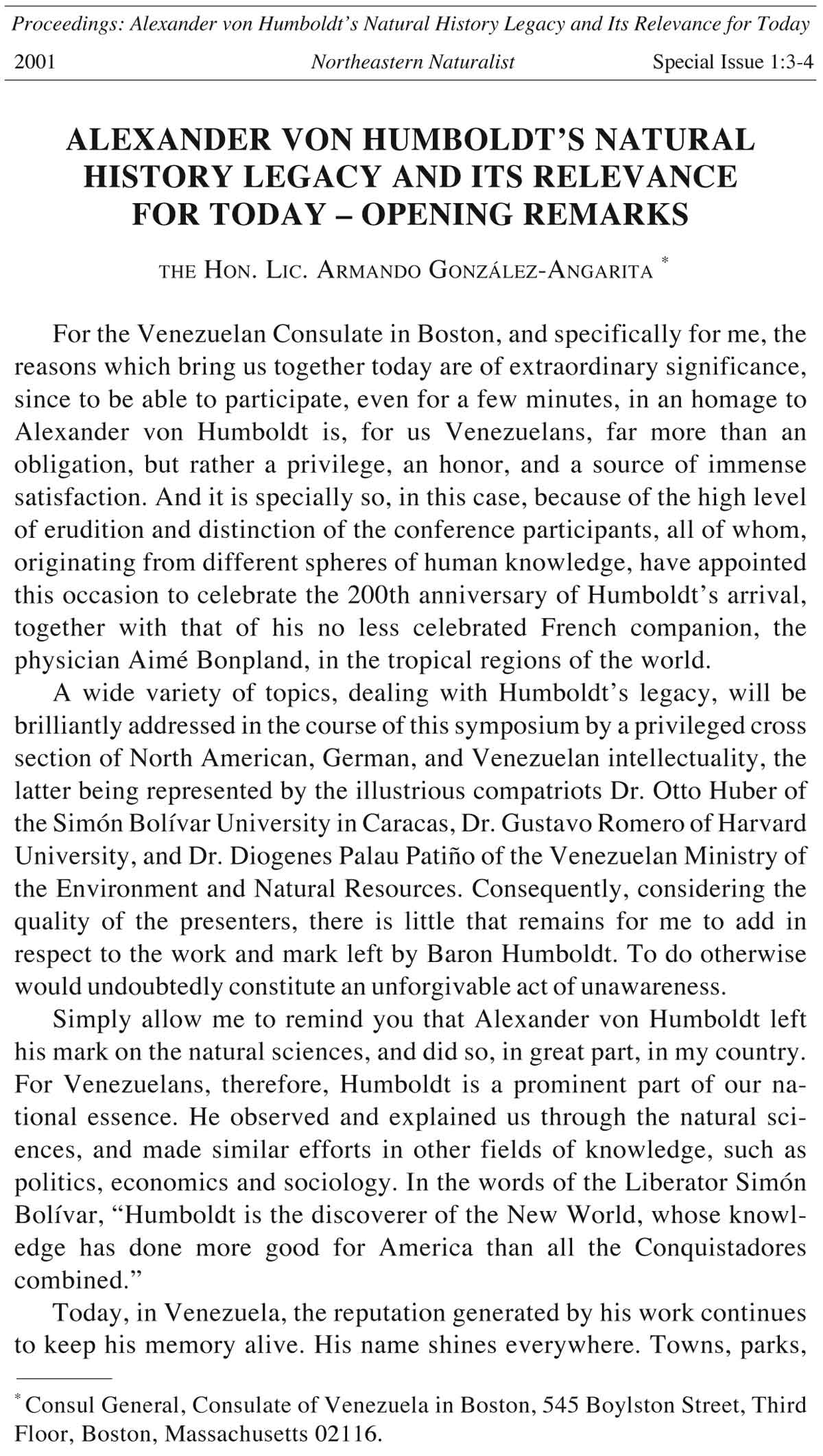
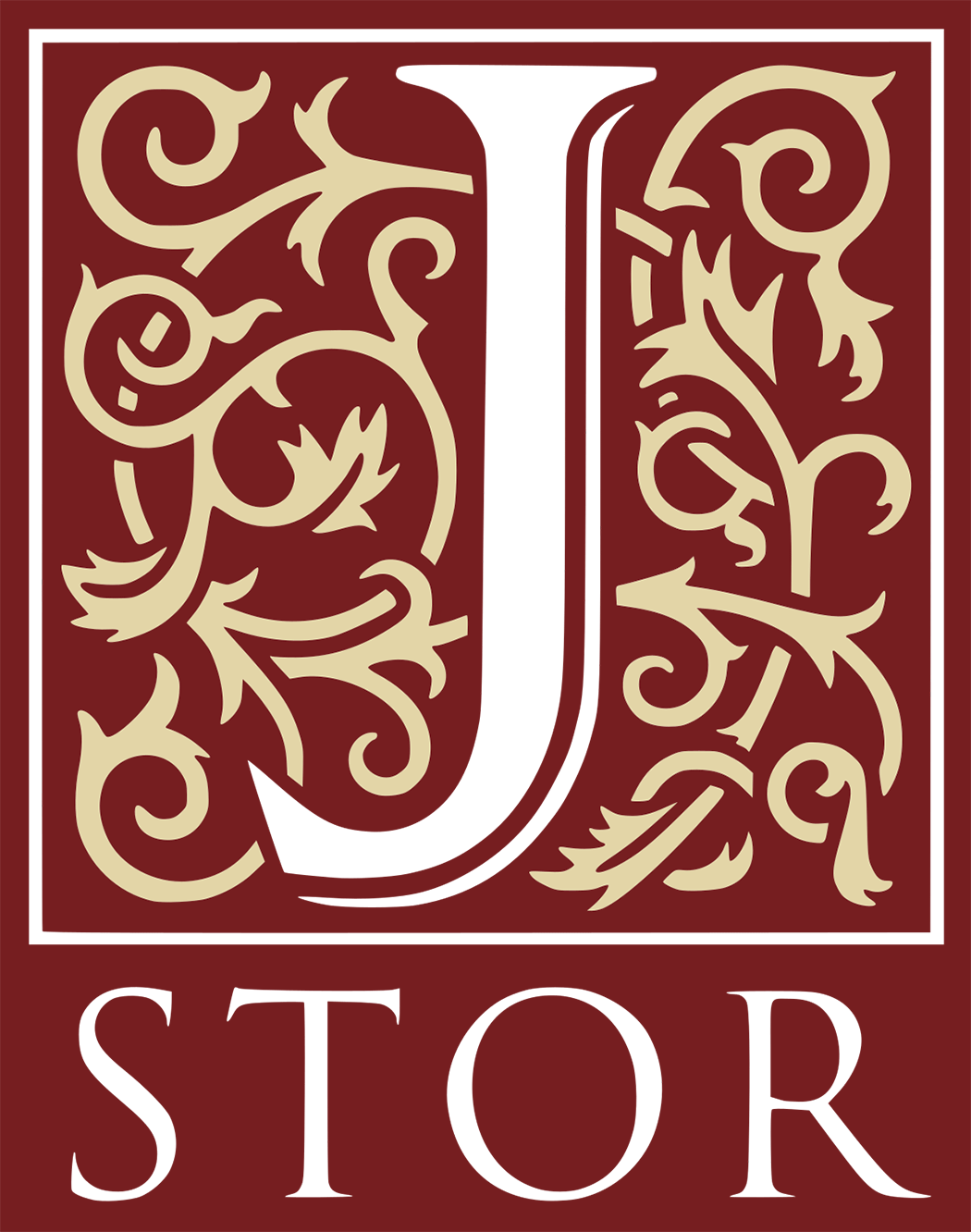



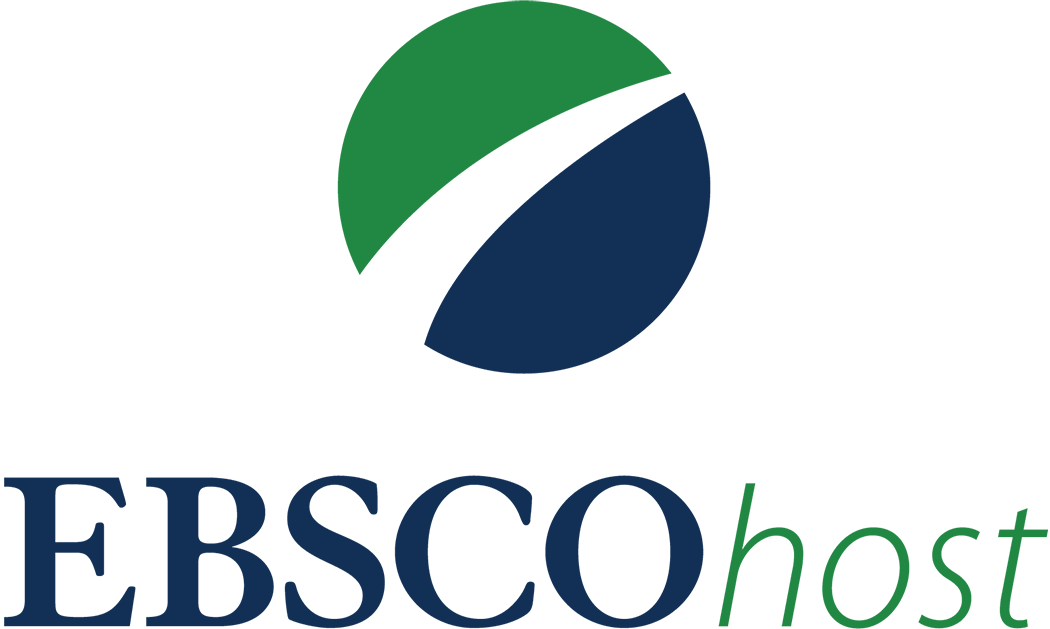

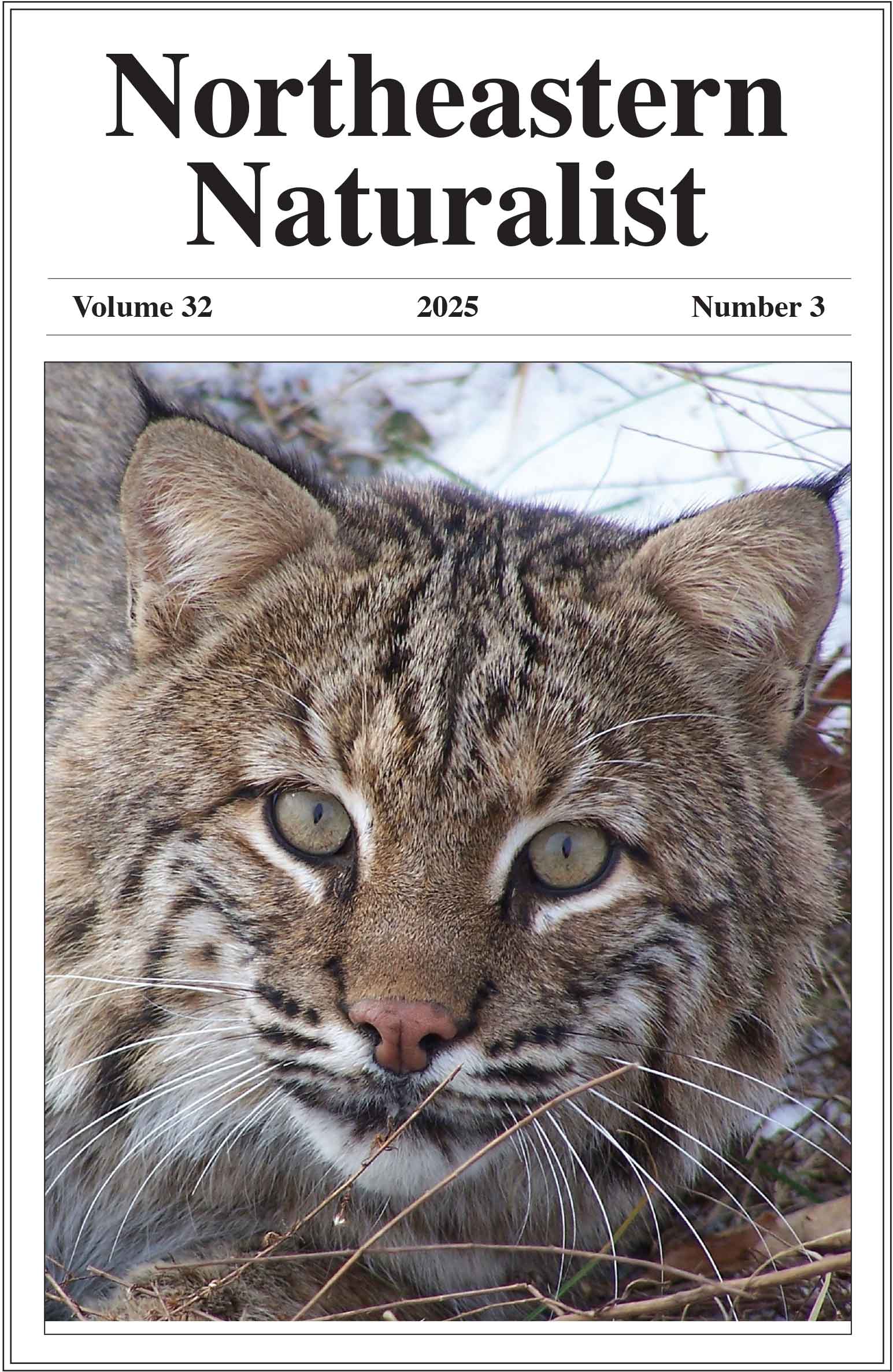
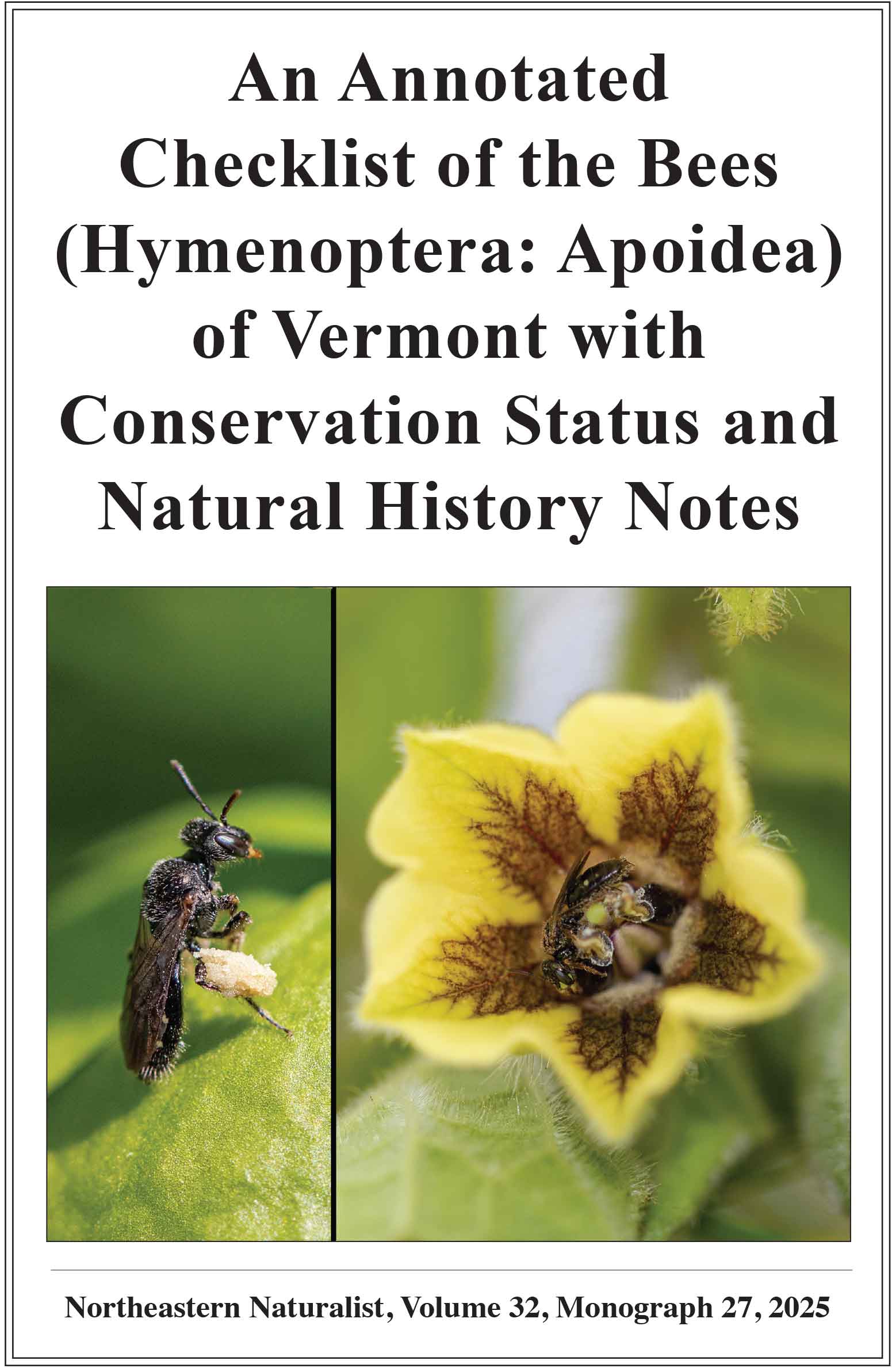



 The Northeastern Naturalist is a peer-reviewed journal that covers all aspects of natural history within northeastern North America. We welcome research articles, summary review papers, and observational notes.
The Northeastern Naturalist is a peer-reviewed journal that covers all aspects of natural history within northeastern North America. We welcome research articles, summary review papers, and observational notes.